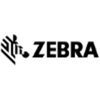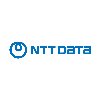
i
Cognizant
Proud winner of ABECA 2024 - AmbitionBox Employee Choice Awards
Filter interviews by
Clear (1)
Cognizant Pyspark Developer Interview Questions, Process, and Tips
Cognizant Pyspark Developer Interview Experiences
2 interviews found
I applied via Walk-in and was interviewed in Nov 2024. There were 3 interview rounds.
(2 Questions)
- Q1. What are the optimization techniques used in Apache Spark?
- Ans.
Optimization techniques in Apache Spark improve performance and efficiency.
Partitioning data to distribute work evenly
Caching frequently accessed data in memory
Using broadcast variables for small lookup tables
Optimizing shuffle operations by reducing data movement
Applying predicate pushdown to filter data early
- Q2. What is the difference between coalesce and repartition, as well as between cache and persist?
- Ans.
Coalesce reduces the number of partitions without shuffling data, while repartition increases the number of partitions by shuffling data. Cache and persist are used to persist RDDs in memory.
Coalesce is used to reduce the number of partitions without shuffling data, while repartition is used to increase the number of partitions by shuffling data.
Coalesce is more efficient when reducing partitions as it avoids shuffling...
(2 Questions)
- Q1. What is the SQL query to find the second highest rank in a dataset?
- Ans.
SQL query to find the second highest rank in a dataset
Use the ORDER BY clause to sort the ranks in descending order
Use the LIMIT and OFFSET clauses to skip the highest rank and retrieve the second highest rank
Example: SELECT rank FROM dataset ORDER BY rank DESC LIMIT 1 OFFSET 1
- Q2. What is the SQL code for calculating year-on-year growth percentage with year-wise grouping?
- Ans.
The SQL code for calculating year-on-year growth percentage with year-wise grouping.
Use the LAG function to get the previous year's value
Calculate the growth percentage using the formula: ((current year value - previous year value) / previous year value) * 100
Group by year to get year-wise growth percentage
(2 Questions)
- Q1. What tools are used to connect Google Cloud Platform (GCP) with Apache Spark?
- Ans.
To connect Google Cloud Platform with Apache Spark, tools like Dataproc, Cloud Storage, and BigQuery can be used.
Use Google Cloud Dataproc to create managed Spark and Hadoop clusters on GCP.
Store data in Google Cloud Storage and access it from Spark applications.
Utilize Google BigQuery for querying and analyzing large datasets directly from Spark.
- Q2. What is the process to orchestrate code in Google Cloud Platform (GCP)?
- Ans.
Orchestrating code in GCP involves using tools like Cloud Composer or Cloud Dataflow to schedule and manage workflows.
Use Cloud Composer to create, schedule, and monitor workflows using Apache Airflow
Utilize Cloud Dataflow for real-time data processing and batch processing tasks
Use Cloud Functions for event-driven serverless functions
Leverage Cloud Scheduler for job scheduling
Integrate with other GCP services like BigQ...
Interview Preparation Tips
- sql
- spark
- python
- Cloud
(2 Questions)
- Q1. What is the difference between coalesce and repartition in data processing?
- Ans.
Coalesce reduces the number of partitions without shuffling data, while repartition reshuffles data to create a specific number of partitions.
Coalesce is used to reduce the number of partitions without shuffling data
Repartition is used to increase or decrease the number of partitions by shuffling data
Coalesce is more efficient when reducing partitions as it avoids shuffling
Repartition is useful when you need to explici...
- Q2. What is the difference between a DataFrame and an RDD (Resilient Distributed Dataset)?
- Ans.
DataFrame is a higher-level abstraction built on top of RDD, providing more structure and optimization capabilities.
DataFrames are distributed collections of data organized into named columns, similar to tables in a relational database.
RDDs are lower-level abstractions representing a collection of objects distributed across a cluster, with no inherent structure.
DataFrames provide optimizations like query optimization a...
Interview questions from similar companies

(2 Questions)
- Q1. Why Spark is used?
- Ans.
Spark is used for big data processing due to its speed, scalability, and ease of use.
Spark is used for processing large volumes of data quickly and efficiently.
It offers in-memory processing which makes it faster than traditional MapReduce.
Spark provides a wide range of libraries for diverse tasks like SQL, streaming, machine learning, and graph processing.
It can run on various platforms like Hadoop, Kubernetes, and st...
- Q2. What are RDDs and DataFrames
- Ans.
RDDs and DataFrames are data structures in Apache Spark for processing and analyzing large datasets.
RDDs (Resilient Distributed Datasets) are the fundamental data structure of Spark, representing a collection of elements that can be operated on in parallel.
DataFrames are distributed collections of data organized into named columns, similar to a table in a relational database.
DataFrames are built on top of RDDs, providi...
Skills evaluated in this interview

I applied via Naukri.com and was interviewed in Sep 2024. There was 1 interview round.
1. Find duplicate
2. 2,3 highest salary

I applied via Naukri.com and was interviewed in Jan 2024. There were 2 interview rounds.
Basic python coding, list, dict, generators etc
(1 Question)
- Q1. Salary negotiation
Interview Preparation Tips
- Python
- Spark
- RDD
- SQL

(1 Question)
- Q1. Conceptual questions

(1 Question)
- Q1. Basic SQL and Python Questions

I applied via Naukri.com and was interviewed in Mar 2023. There were 2 interview rounds.

(5 Questions)
- Q1. What are oops concepts in java, explain real time scenario
- Ans.
OOPs concepts in Java include inheritance, polymorphism, encapsulation, and abstraction.
Inheritance allows a subclass to inherit properties and methods from a superclass.
Polymorphism allows objects to take on multiple forms and behave differently based on their context.
Encapsulation hides the implementation details of an object and only exposes necessary information.
Abstraction allows for the creation of abstract class...
- Q2. Uses of interface, inheritance
- Ans.
Interfaces define contracts for behavior, while inheritance allows for code reuse and polymorphism.
Interfaces allow for loose coupling and abstraction, enabling multiple implementations of the same behavior.
Inheritance allows for code reuse and extension of existing classes, reducing code duplication.
Polymorphism allows objects of different classes to be treated as if they were of the same class, simplifying code and i
- Q3. SQL query for join of tables
- Ans.
SQL query for joining tables
Use JOIN keyword to combine two or more tables based on a related column
Specify the columns to be selected using SELECT keyword
Use ON keyword to specify the condition for joining the tables
Different types of joins include INNER JOIN, LEFT JOIN, RIGHT JOIN, and FULL OUTER JOIN
- Q4. Java concepts used in your project
- Ans.
Used Java concepts such as inheritance, polymorphism, and exception handling in my project.
Implemented inheritance to create a base class and derived classes with specific functionalities.
Utilized polymorphism to allow objects of different classes to be treated as if they were of the same class.
Implemented exception handling to handle errors and prevent program crashes.
Used interfaces to define a set of methods that a ...
- Q5. Overloading vs overriding, practical uses
- Ans.
Overloading is having multiple methods with the same name but different parameters. Overriding is having a method in a subclass with the same name and parameters as a method in the superclass.
Overloading is used to provide different ways to call a method with different parameters
Overriding is used to provide a specific implementation of a method in a subclass
Overloading is resolved at compile-time while overriding is r...
Interview Preparation Tips
- Core Java
- OOPS
- collection framework
- Database Management
Skills evaluated in this interview

I applied via campus placement at Hindustan College of Science and Technology, Agra and was interviewed in Mar 2021. There were 5 interview rounds.
Interview Questionnaire
4 Questions
- Q1. Some basics questions about project
- Q2. How to find 2nd largest salary of the person
- Q3. Complexity of the algorithm
- Ans.
Complexity of an algorithm refers to the amount of resources required to execute it.
Complexity can be measured in terms of time and space complexity.
Time complexity refers to the number of operations required to execute the algorithm.
Space complexity refers to the amount of memory required to execute the algorithm.
Common time complexities include O(1), O(log n), O(n), O(n log n), O(n^2), O(2^n), O(n!).
Optimizing algori...
- Q4. Java (OOps)
Interview Preparation Tips
Skills evaluated in this interview

Interview Questionnaire
2 Questions
- Q1. OOPS Concepts
- Q2. Threads Concepts
Interview Preparation Tips
Cognizant Interview FAQs
Some of the top questions asked at the Cognizant Pyspark Developer interview -
Recently Viewed
Tell us how to improve this page.
Cognizant Interviews By Designations
- Cognizant Programmer Analyst Interview Questions
- Cognizant Programmer Analyst Trainee Interview Questions
- Cognizant Associate Interview Questions
- Cognizant Senior Associate Interview Questions
- Cognizant Processing Executive Interview Questions
- Cognizant Software Engineer Interview Questions
- Cognizant Senior Processing Executive Interview Questions
- Cognizant Software Developer Interview Questions
- Show more
Interview Questions for Popular Designations
- Python Developer Interview Questions
- Software Developer Interview Questions
- Python Software Developer Interview Questions
- Python and Django Developer Interview Questions
- Python Developer Intern Interview Questions
- Java Developer Interview Questions
- Senior Python Developer Interview Questions
- Front end Developer Interview Questions
- Show more
Cognizant Pyspark Developer Interview Process
based on 2 interviews
Interview experience
Pyspark Developer Interview Questions from Similar Companies
Fast track your campus placements
Cognizant Pyspark Developer Reviews and Ratings
based on 1 review
Rating in categories
|
Associate
72.3k
salaries
| ₹5.1 L/yr - ₹16 L/yr |
|
Programmer Analyst
55.6k
salaries
| ₹2.4 L/yr - ₹9.6 L/yr |
|
Senior Associate
48.6k
salaries
| ₹9 L/yr - ₹27.4 L/yr |
|
Senior Processing Executive
28.9k
salaries
| ₹1.8 L/yr - ₹9 L/yr |
|
Technical Lead
17.6k
salaries
| ₹5.9 L/yr - ₹24.9 L/yr |

TCS

Infosys

Wipro

Accenture
- Home >
- Interviews >
- Cognizant Interview Questions >
- Cognizant Pyspark Developer Interview Questions















